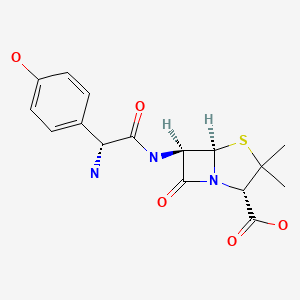Baby Reaction To Amoxicillin In Breast Milk
Effect of amoxicillin on breastfed baby. Though your breast milk supplies your baby with certain antibodies that protect her from getting sick a food allergy can still be present.

Safe Medication Chart For Breastfeeding Medication Chart Decrease Milk Supply Breastfeeding
Amoxicillin will not harm a baby in most instances but some may experience an adverse reaction to the drug if they are allergic to penicillin.

Baby reaction to amoxicillin in breast milk. Amoxicillin passes into the breast milk just like any other chemical compound present in the mothers bloodstream. Augmentin is made up of two drugs and small amounts of one of the components amoxicillin are excreted in breast milk. Excretion into breast milk is insignificant.
Signs of abdominal pain crying and grunting. Amoxil can be seen in breast milk albeit at low levels and waiting 4-5 half-lives should be reasonable time to clear amoxil from the mothers circulation. But an amoxicillin rash can develop at any time during the course of your childs antibiotics.
Amoxicillin passes into breast milk and although this is unlikely to have any harmful effects on a nursing infant it could theoretically affect the natural bacteria found in the babys mouth or gut. The inflammatory mediators are released causing diarrhea and rash in susceptible newborn. The risk is lowest for healthy babies 6 months and older who.
A study of 67 mothers taking this product found that there were no serious health effects in the breastfeeding infants. 1 On the one hand the risks have often been overstated leading to. Amoxclav enters the breast milk however based on a small number of studies.
Breast milk is the best source of nourishment for babies against any formula milk. The amount of drug present in the breast milk can vary depending on the. To get rid of this substance from the system the childs body releases histamine and other chemicals causing an allergic reaction in the childs body.
Amoxicillin passes into breast milk and although this is unlikely to have any harmful effects on a nursing infant it could theoretically affect the. The babys immune system recognizes it as a foreign substance and mounts an immune response to it. Exposure to medication in breast milk poses the greatest risk to premature babies newborns and babies who are medically unstable or have poorly functioning kidneys.
The peak level of amoxicillin in breast milk is found between four and six hours after a single dose of 1g consumed by the mother. Inconsolable crying for long periods and showing irritability as a result of abdominal pain especially after feeding. Although the majority of medicines administered to breast feeding mothers cause no harm to babies and there are hardly any contraindications to breast feeding when maternal medication is necessary initiation and continuation of breast feeding by a mother on antibiotics remains a difficult subject.
If this is the case for your baby her body views a certain food as potentially dangerous and produces a different set of antibodies aimed to fight off this so-called invader. Amoxicillin is widely used in children for other indications in whom diarrhea gastrointestinal discomfort and rashes are common side effects and anaphylactic reactions occur in 001 of patients Handbook of Child and Adolescent Tuberculosis Jeffrey R. Here are the most common symptoms of milk allergies in infants.
Donald Penicillins pass into the breast milk. The digestive enzyme lactase is secreted in the small intestine to break down lactose. It is advisable to take your dose of Augmentin just after a feed to reduce the exposure of the drug to your baby.
Occasionally rash and disruption of the infants gastrointestinal flora resulting in diarrhea or thrush have been reported but these effects have not been adequately evaluated. 5 Remember it takes time for your body to be completely free of the offending food so make sure youve removed all sources of the food for at least two weeks. The scientists believe that infant saliva reacts with breast milk to form hydrogen peroxide at high enough levels to kill opportunistic pathogens but allow others to grow.
This type of rash often develops between 3 and 10 days after starting amoxicillin. No adverse effects reported in breasted infants. Does Amoxicillin Pass Through Breast Milk.
I could not find any data in the literature related to performing oral pcnamoxil challenges in a mom who is breast feeding and a child is allergic to the pcnamoxil and the potential risk to the child. The most frequent allergic reaction in breastfed babies is a milk protein allergy. The side-effects of amoxicillin are due to the active compound penicillin present in it.
Start with cows milk. Amoxicillin is used to treat infections in babies and it can be used by women who are breastfeeding. It has not been shown to cause problems for a nursing baby.
Many babies cannot tolerate lactose present even in breast milk. Factors such as gestational age age and weight at exposure maternal age or type of macrolide were not associated with the infants adverse reaction in multivariate regression. But with infants the allergy battleground is in the intestines.
Changing your diet can be hard. In order to test their hypothesis the researchers combined breast milk and infant saliva and attempted to culture the pathogen Staphylococcus aureus along with gut commensal bacteria. The adverse reactions in the infants exposed to macrolides were rash diarrhea loss of appetite and somnolence whereas the infants exposed to amoxicillin experienced rashes and somnolence.
In premature babies sufficient amount of lactase is not produced and they cannot tolerate lactose in breast. Svetlana Fedoseeva The benefits of taking Amoxicillin while breastfeeding must be weighed against the risks. Be aware of false negative bacterial cultures in the infant when the mother is on antibiotics.
In older kids and adults the fight between your body and say cat dander or pollen takes place up high causing a runny nose or sneezing. Limited information indicates that amoxicillin produces low levels in milk that are not expected to cause adverse effects in breastfed infants. 90 CIs of the ratios of these parameters in concomitant breast milk administration to those of water were within 89 and 116 suggesting they are bioequivalent defined as a.
It is commonly prescribed for infants by Pediatricians. Can a nursing mother take amoxicillin. A lot of spitting up.
Augmentin can be given to a baby of this age. The symptoms of breast milk allergy include. Results showed that pharmacokinetic parameters including area-under-the-curve Cmax and half-life of the water-based and milk-based amoxicillin administration were not significantly different.

Is It Safe To Take Amoxicillin While Breastfeeding
Amoxicillin Drugs And Lactation Database Lactmed Ncbi Bookshelf

Is It Safe To Take Amoxicillin While Breastfeeding

Can You Take Antibiotics While Breastfeeding


Posting Komentar untuk "Baby Reaction To Amoxicillin In Breast Milk"